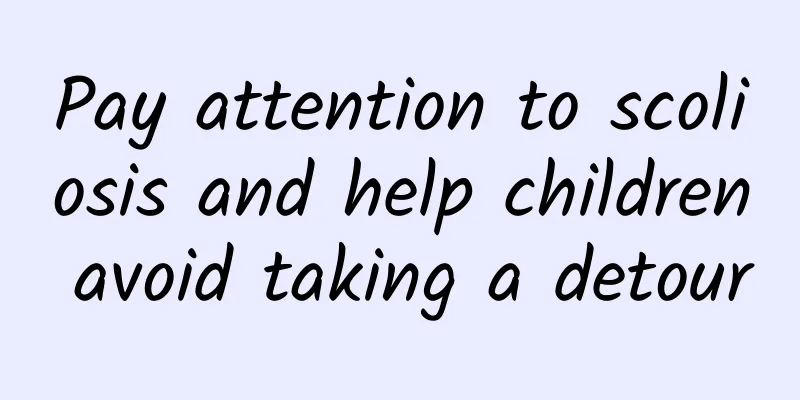Sleep can enhance immunity and make immune cells more efficient in killing enemies

|
Whenever we feel unwell, the first reaction of the people around us is "Get some rest and go to sleep!" Everyone is more or less aware of the importance of sleep to human health. When signs of illness appear, everyone's first instinct is often to get more sleep. However, in today's fast-paced society, maintaining stable sleeping habits is not an easy task for many people, especially when time is tight, work pressure is high, or there are various complicated family and social affairs to deal with. Some studies have found that long-term lack of sleep can cause irreversible damage to the immune system, leading to inflammation in the body and decreased immune cell function. Lack of sleep leads to inflammation The sleeping and eating habits of all animals, including humans, are governed by circadian rhythms. The word circadain is taken from the Latin words "circa," meaning daytime, and "diem," meaning around. The circadian rhythm is a natural process that controls the sleep-wake cycle. The sleep-wake cycle is determined by a complex interaction between the central nervous system, the endocrine system, and the immune system. Normally, when our bodies are infected, inflamed, or stressed, cytokines appear to fight disease, which is crucial for regulating the immune system. During sleep, our bodies release cytokines. When the human body is attacked by pathogens or under stress, the demand for cytokines increases, so lack of sleep can hinder the body's ability to fight infection . This is one reason why the body tends to sleep more when it is suffering from any infection. The body uses a lot of energy to fight the virus and eliminate the pathogen by activating the immune system, and there is often less energy for other activities. Therefore, getting more sleep when you are sick is extremely important to heal the body and conserve energy to fight the disease. According to the National Sleep Foundation, chronic sleep deprivation poses a potential risk to the immune system. In a study conducted by Ackermann et al., researchers compared the white blood cell counts of 15 subjects under normal and severe sleep deprivation conditions. In the first part of the study, 15 participants followed a strict eight-hour sleep schedule for one week. During the study, they were exposed to 15 minutes of sunlight within an hour and a half of waking up, and were asked not to drink coffee, alcohol or take medications for the final three days to normalize their circadian rhythm cycles. In the second part of the study, the participants were subjected to 29-hour continuous wakefulness periods. After the study, the participants' white blood cell counts were compared and it was found that a type of white blood cell called granulocytes responded to sleep deprivation in a way typical of the body's stress response, especially at night. Poor sleep quality leads to NK cell activity decreased by 70% In another experiment, the experimenters studied the blue elements in the picture below. They are called natural killer cells, and these natural killer cells are almost like the special agents of our immune system. They are very good at identifying dangerous, unwanted elements and eliminating them. To be more specific, they can destroy a cancerous tumor mass. So, of course, we would like to have a set of these powerful immune killers at all times, but the bad news is that if we don't get enough sleep, we won't have these natural killer cells. 4 hours of sleep per night causes NK cell activity to decrease by 70% Source: Public information In this experiment, the subjects were restricted to four hours of sleep a night, and then the researchers measured what percentage reduction in immune cell activity the subjects suffered. 10%? Or 20%? The answer was quite surprising, a full 70% decrease in natural killer cell activity! This is a worrying immune deficiency state . Through experiments like these, we may be able to understand why there is a significant link between short sleep duration and the risk of multiple forms of cancer. Currently, that list includes bowel, prostate and breast cancer. In fact, the link between insufficient sleep and cancer is now so strong that the World Health Organization has listed any form of nighttime shift work as a possible carcinogen because it disrupts your sleep-wake rhythm . If that weren't disturbing enough, researchers have found that lack of sleep can even erode the fabric of biological life itself - your DNA genetic code . Lack of sleep may lead to genetic defects In this study, they selected a group of healthy adults, restricted them to only six hours of sleep per night for a week, and then compared the changes in gene activity with those who slept eight hours a night. There were two key findings: First, due to lack of sleep, the activity of a considerable number of 711 genes was changed. Second, the activity of about half of these genes actually increased; the other half of the genes with reduced activity were genes related to the immune system, so immune deficiency naturally occurred. In contrast, genes that are actually upregulated or increased by lack of sleep are associated with promoting tumorigenesis, long-term chronic inflammation in the body, and stress, which increases the risk of cardiovascular disease and cancer. The health of the human body will not be unscathed by the signs of insufficient sleep. Lack of sleep will penetrate every corner of the body and even tamper with the healthy DNA of other parts of the body. Lack of sleep leads to a decline in immune system function and an increased risk of illness Source: Public information So the conclusion is actually very simple: the less you sleep, the shorter you live. While many people believe that diet and hygiene are key to boosting immune health, sleep actually plays an integral role in immune function. Sleep and the immune system are linked in a two-way manner, and both play an important role in the body's defense against disease. Optimal immune function requires adequate sleep, while insufficient sleep can impair immune response. So having said so much, what are some good sleep suggestions? 1. Maintain a regular bedtime and wake-up schedule. Schedule a protected sleep schedule that includes an anchor period (i.e., 4-6 hours regardless of schedule). 2. Take naps to reduce daytime fatigue, but don’t do them so often that they replace restful sleep at night. 3. Cut back on alcoholic beverages, energy drinks, and caffeinated foods like dark chocolate in the evening. 4. Limit the consumption of sugary drinks, sweets, and desserts as they can worsen sleep quality. 5. Keep the sleeping environment comfortable, dark and quiet. A cooler environment is more conducive to falling asleep. In summary, the importance of sleep to a person is self-evident, especially for those who already have immune deficiencies or suffer from chronic sleep disorders. In the 996 and 007 work systems, lack of sleep has become the norm. After reading this article, I hope you will pay more attention to it and reasonably protect your right to healthy sleep. Adjust various aspects - such as diet, exercise, etc., to live a healthier life. Lack of sleep leads to a decline in immune system function and an increased risk of illness Source: Public information About one-third of a person's life is spent sleeping. Sleep is second only to breathing and heartbeat in importance to the human body. Lack of sleep is equivalent to disease waving at you. During sleep, immune cells are more likely to attach to bacteria and viruses through integrins and play a killing function. Therefore, for people who have poor sleep quality for a long time, the state of your immune system is not optimistic. |
<<: Sugar-free drinks are not healthy. Sweeteners have these 5 major harms to the body.
>>: Only if your intestines live a hundred years can you live a long life
Recommend
What should I do if wounds proliferate?
Caesarean section is a very common method of deli...
Are early pregnancy test strips accurate and what are the precautions for use?
A family is complete only when it has children. F...
What should I do if I have sex 12 days after a medical abortion?
Medical abortion is an abortion method with good ...
Pregnancy and blood
Any slight external influence may cause great har...
Is it normal to have my period at the age of 11?
I think female friends generally know what menstr...
How many days after menstruation can I test ovulation
Many couples who are actively preparing for pregn...
How long does it take to bleed after taking abortion pills?
The drug for medical abortion is a combination of...
What should I do if there is a lot of leucorrhea and odor in my lower body?
Nowadays, many women often suffer from gynecologi...
Normal range of body mass index for girls
After China's reform and opening up, people&#...
What should I do if I have amenorrhea caused by weight loss?
When it comes to losing weight, many people make ...
Does obesity cause amenorrhea?
In life, whether adults or children, if the body ...
If I lose my driver's license, do I need to go back to my hometown to get a replacement? How do I get a replacement driver's license?
Having a driver's license means you have the ...
How to ride a bike that's good for your knees? What to bring for long-distance riding
Cycling is one of the more popular sports nowaday...
What should girls do if they have stomach pain during menstruation?
It is quite common for some girls to have stomach...
Can I take medicine for body odor during pregnancy?
If you develop body odor during pregnancy or alre...









